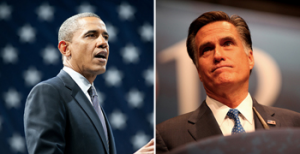This Week in Thought Leaders: Harnessing the Power of Words, Giving Up on Offices, and More
Politicians often want to be defined by a single word. Should that be every professional’s goal, too?
This week – to the delight of writers and editors everywhere – LinkedIn’s influencers focused on the power of words. In some of the most widely-shared posts, they described how language can be used to brand politicians and professionals, spark creative change, and, yes, even improve the quality of our lives.
The attention to words began with a post from IDEO CEO Tim Brown, who revealed the “secret phrase” that can get a team to think creatively. The phrase itself is simple: “How might we?” But Brown says uttering those words at the start of a project can help any group solve a challenge. The “how,” for example, indicates that solutions exist. The “might” gives people freedom to suggest ideas that could work – or flop. And the “we” implies that everyone is working together.
Those three words became popular across LinkedIn. But author Dan Pink, in his debut post, argued that presidential candidates – and everyone, for that matter – should aim to be even more succinct.

Just be careful about what that word is. Restaurant consultant and author Clark Wolf criticized the abuse of language this week, noting that words such as "artisan" are now being used to describe everything from Domino’s Pizza to a well-crafted piece of cheese. He advocates a return to a time when certain words “glowed with the magic of angelic good intention.”
The need for that kind of nuance is essential with the spoken word, too. LinkedIn’s CEO Jeff Weiner mapped out his three golden rules for public speaking, urging speakers to know their audience – and the topics they care about – and to recognize when only a joke will save a presentation.
Don’t take my word for all of this. Have a look at those posts, and six others that caught our eye this week:
Nick Thompson: Why Aren't Romney and Obama Talking About Software Jobs? Neither presidential candidate has spent much time discussing technology, even with so much focus on the economy and jobs. Why not? Thompson, the editor of NewYorker.com, says issues like patent reform and H1B visas don't resonate in swing states, where manufacturing is king. There's another explanation, though: It's hard to explain complicated tech policies in a stump speech.
Dr. Marla Gottschalk: Why You Should Hate Your Office Let’s face it: Offices can be soul-destroying. The space never changes. The time spent commuting is unproductive. And those 9-to-5 hours are illogical. Is there a solution? Gottschalk proposes some ideas, from desks on wheels to standing-only meetings. LinkedIn users share their own suggestions – and rants about offices – in the comments.
Jeff Selingo: Why Is American Higher Education So Averse to Change? American higher education is in trouble. A third of university presidents say the system is on the wrong track. Costs are rising. And just about 50 percent of students who enter college leave with a bachelor’s degree. Why? Selingo compares colleges to newspapers and the music industry, and points to schools’ biggest problems: hubris and skepticism.
Arianna Huffington: On New Hips, Old Habits and the Inestimable Value of Giving Blood When Huffington recently returned from the hospital with a new hip, she learned some important lessons. No. 1: It’s impossible to learn to walk again and to answer emails at the same time. No. 2: Blood donations are a very good thing.
Ron Shaich: Innovating a Socially Conscious Business The founder of Panera had an idea to start a pay-what-you-want café to address hunger. The challenge: making it happen. Shaich takes readers behind the scenes of Panera Cares, and describes how the concept came to life through company volunteers, frequent iterations and lots of flying “under the corporate radar.”
Jim Clifton: Entrepreneurship Trumps Innovation It’s a well-worn phrase on the campaign trail: "Jobs will come from innovation.” Clifton, the CEO of Gallup, says that’s wrong. He makes the case for entrepreneurship – not innovation – and says America needs to be doing more to find and develop entrepreneurs at a young age.
Click here to read more from our thought leaders, or to nominate luminaries you think should be sharing their insights on LinkedIn.
Editor’s Note: This blog post is syndicated from LinkedIn Editor Chip Cutter. Follow him on LinkedIn for more.
Photo credit: BarackObama/Flickr (Obama), GageSkidmore/Flickr (Romney), used under a Creative Commons license.




